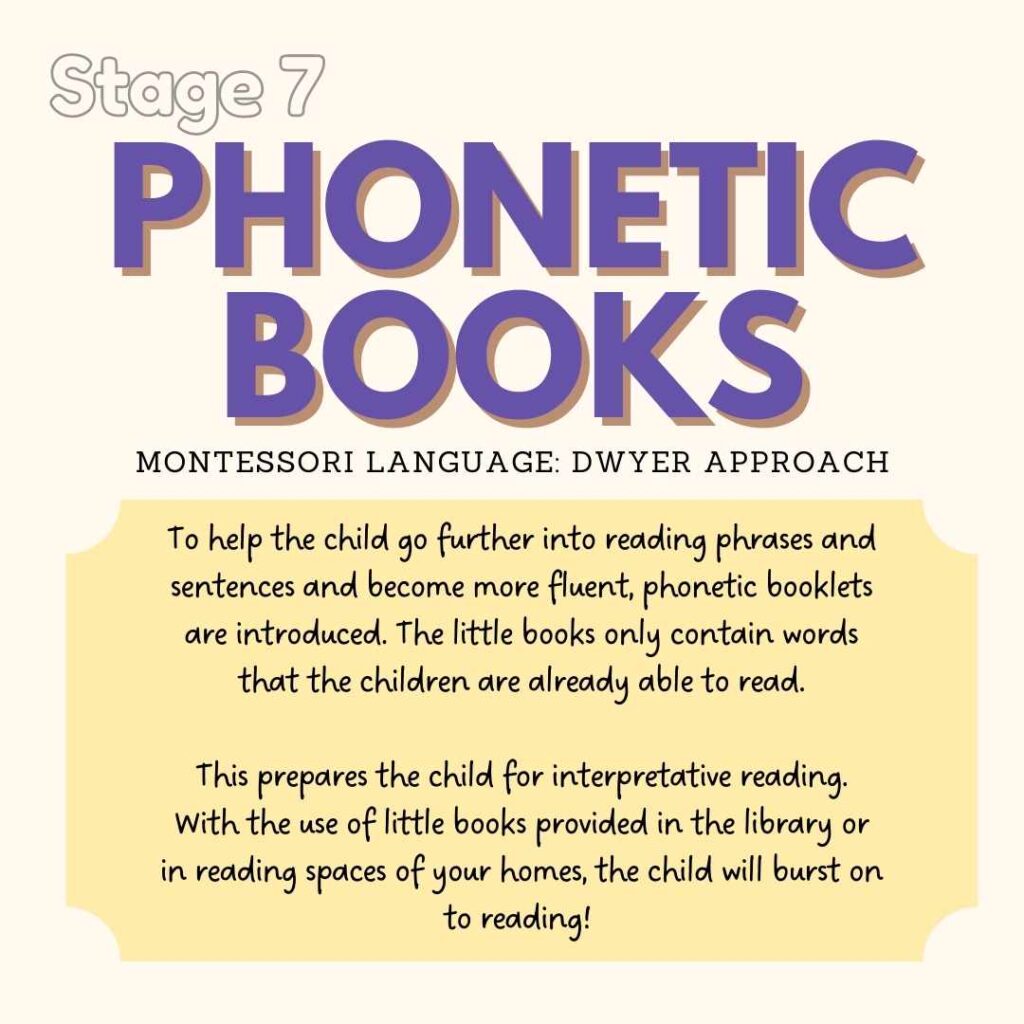As part of the total Montessori approach to the development of language, here are the stages to having the keys to write and read in English, according to Muriel Dwyer:
Feel free to browse the previous stages at will. We have printable materials and references to go along with these stages. Now, we are at Stage 7!

To help the child go further into reading phrases and sentences and become more fluent, phonetic books are introduced. These are booklets with picture on the left and phonetic name, phrase, or sentence on the right, OR alternately, all of those on the right.
They contain words that are spelled phonetically. This means that the words are spelled the way they sound, making it easier for the reader to sound them out. The books often include pictures to help children understand the meaning of the words they are reading.
These books are available for different reading levels, from beginner to advanced, as well as in different languages, so people learning English as a second language can benefit from them as well.
One of the benefits of phonetic books is that they can help children who struggle with reading due to learning differences such as dyslexia. By breaking words down into their individual sounds, phonetic books make reading more accessible and less intimidating for these children.
How to Use Phonetic Books
- The child is asked to choose a booklet then the adult will read through it first and then,
- Invite the child to read it too,
- Followed by a discussion after.
- The child is then encouraged to choose another book and read with other children.
This prepares the child for interpretative reading.
With the use of little phonetic books provided in the library or in reading spaces of your homes, the child will burst on to reading!
Prior to this stage, the child has read hundreds of words and is now ready to put his phonetic and puzzle word reading skills into practice.

The little phonetic books only contain words that the children are already able to read. You can create them yourself or find decodable books from here. Such a great list!
In conclusion, phonetic books provide a structured and accessible way to learn the sounds and spellings of words, and can be especially beneficial for children with learning differences.
If this article has been helpful, pin it and share the link to your friends. TAG @MindSproutPH on your IG stories & receive a special discount in our store!
